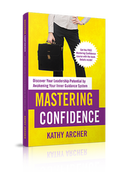|
As nonprofit leaders, we spend a lot of time focused on our client's and community's needs and ensuring they have the tools to be their best selves. But, sometimes, we forget to turn that focus around and use those same tools ourselves.
Recently I was talking to a client about setting goals and how to break them down. She laughed and said this is what we do with our disability clients. I agreed and chuckled that I've been writing goals for clients since I was in college! Another time I was working with a group of family visitors. They were so excited about the resources they had just received to help families expand their children's emotional literacy. Funnily enough, I was working with the leaders to develop their emotional intelligence. The books, flashcards, and stuffies depicting certain emotions could also be tools for team conversations to help them expand their emotional literacy. In leadership, we get hyper-focused on getting things done, achieving results, and forgetting that we need to grow and develop. And in many cases, we have the tools already available to do that. Just like there is a focus on increasing emotional vocabulary for children, there is more and more focus on helping leaders improve their emotional vocabulary and thus their emotional intelligence. So let's explore how increasing our emotional vocabulary works. Understanding the language of emotions Did you know those anxious thoughts you experience indicate that you feel you don't have control over something? When you realize this, you can start to identify what you do have control over and what you don't. It helps you prioritize, ask for help or let go of what you can't control. Were you aware that anger gives you the energy to break through a barrier that is in the way of what you want? Knowing that can help you identify what that barrier is and what to do about it. Anger is an action emotion. Conversely, anger differs from feeling resigned, which has you giving up. Stop ignoring your emotions Far too often, we overlook the messages our emotions are giving us. But when you learn to understand what certain emotions mean, you'll be a smarter leader! Leaders manage heavy loads. With this burden, often things come at the leader that triggers them and their emotions. However, many of us, especially women who are fearful of being called emotional, try to suppress, shut off or tune out those emotions. This is what happens when you ignore your emotions Two things can happen when you try to ignore your emotions as you push through to-do lists, meeting and dealing with people.
Learning to explore what you are feeling for valuable data It's valuable data I want to focus on for a moment. When you take time to understand how your emotions are informing you, you'll be better able to deal with all of that. Increasing your emotional literacy helps you understand what your emotions mean As I've developed my leadership, I've also learned to build my emotional intelligence. To do that, I've needed to increase my emotional literacy. I needed to learn the language of emotions. I have had to take apart the words surrounding emotions and feelings, understand what they mean, and label what I'm feeling with finer emotional granularity. Here's how I increased my emotional literacy To increase my emotional literacy, I've had to figure out what's happening inside me, why, what it means, and where it's pointing me. To help me do that, I engage in self-reflective practices such as journaling. One of my favourite tools to help me decipher my emotions is the dictionary and thesaurus app. Listen to my real-life example I sat down to journal one evening after an incident with someone that didn't go so great. I knew I was still stewing about it by sensing the tightness in my chest and jaw! I was irritated and annoyed! A quick search on the thesaurus app told me that a synonym for annoyed is not happy. That helped me question what would make me happy. Or perhaps what is not making me happy. Some insights came from that, but I dug deeper. Continuing to scroll through synonyms, I questioned whether I was dissatisfied, gloomy, or miserable. Each of those words has a slightly different flavour. But none of them nailed it. Sometimes, when I look through the thesaurus, I'll see a word and shrug no, that's not it. But when the word really hits me, it physically hits me. That happened when I saw the phrase let down. I nodded my head! Bingo. I was annoyed because I thought someone would help me out, and they didn't. That meant I had to pick up the pieces, and I didn't have time. I felt let down. Still digging deeper, I realized that feeling disappointed is synonymous with feeling let down. Suddenly, I realized that I felt both let down. Also, I felt disappointed with this person. Both of those emotions led to my irritation and annoyance. How my increased understanding helped me talk to the person That increased awareness, both by developing my emotional literacy and grinding down the emotions to find the specific ones (emotional granularity), changed my mindset and the conversation I was about to have with that person. OLD WAY: Staying at being annoyed and perhaps angry, I might have reacted with a harsher tone, a level of judgment and maybe even a bit of arrogance. NEW WAY: However, my tone was softer when I talked with that person with this new awareness.
It's good to remember... Here's the thing:
ADDITIONAL RESOURCES My thoughts above come after articles I've written to break down the components of emotional intelligence. I hope to help you understand emotional intelligence and develop your emotional intelligence. Here are more articles for you. This article looked at The 8 most overlooked definitions in leadership and why they matter In this article, I covered the following definitions.
In the article Being composed doesn't cut it. You'll need to learn to regain your composure, I looked at these two questions
In the article 3 Steps to Becoming a Better Leader (and having fewer regrets), I help you understand emotional intelligence and how to increase yours. Another article you may want to explore is Women Leaders that expand their Emotional Literacy will increase their Emotional Intelligence. Your turn - How will you increase your emotional intelligence? In my work with women leaders in the nonprofit sector, I provide training and self-reflective tools to help increase their self-awareness. Increased self-awareness gives you an increased ability to bounce back after leadership adversities. Because that's what you need to do to ditch survival mode; Bounce back quicker when you get hit. If I was your coach, I'd be asking you to engage in reflective practices to increase your self-awareness, your emotional literacy and thus your emotional intelligence. How will you engage in self-reflective reflective practices today? This month in my membership, I share the difference between feeling stressed and overwhelmed. There are subtle differences but substantial differences between the two of these. How they impact you, your team and how you deal with them are different. When you understand the difference between those, you'll be able to prevent yourself from going from stressed, overwhelmed to burnt out!! If you want to learn more about the training I offer, check out The Training Library.
0 Comments
I know this from experience.....
Just because you are composed right now doesn't mean you'll be composed an hour from now. Just because you were composed in that conversation with that one person doesn't mean you will stay composed next time you're in a conversation with that person. Composed, as we learned about last week, is static. It's this moment. Vocabulary.com says composure, on the other hand, is a noun, so you can lose, keep, regain, or maintain your composure — your ability to stay calm. If you lose your composure, you're freaking out. And I dare say all of us have lost our composure at some point. Two questions you may be asking
The answers The simple answer to both is to become more self-aware. The longer answer is to commit to developing your self-awareness. Why self-awareness matters Being self-aware means you notice what's happening both inside you and around you. That awareness starts with tuning into your body sensations. Our bodies speak volumes to us. They tell us what's going on and even what we need to do. But most of us never listen. The messages your body is sending to you that you might be ignoring THE SIGNS: When you feel a sense of agitation in your body, it may be telling you that you've been ignoring a problem. Perhaps the headache and tension in your neck are signs that you've been ignoring it, hoping it will go away. THE MESSAGE: However, this agitation and tension tell you that you need to focus on the problem. Perhaps something is going against your beliefs, values or ethics that you need to address. MORE SIGNS: Left unaddressed, the tension in your body starts to heat up, and you feel your heart beating rapidly. Maybe you have sweaty palms and pits. Left unchecked, you'll feel like your blood is boiling. THE LOUDER MESSAGE: Your body is now telling you that perhaps you're feeling furious, angry, or outraged. It's warning you that you need to deal with this before exploding with rage. These body sensations are telling you that something is going on that is very serious, perhaps even dangerous, that needs your composed attention! AN EXAMPLE OF SIGNS AND MESSAGES IGNORED Consider how you may start being irritated with one of your employees, Becca, who is late a couple of times for her shift. And then you notice that she's late more frequently. But you think it was just that her child was sick, so you let it go. ▶ You hope it will go away Then you find out it's still happening. So now you feel your annoyance building. But again, you hope it will go away and that Becca will get back to being on time. Because unfortunately, you've got a lot of other things to deal with and don't have time for this. ▶ You don't have time to deal with it Then one day, you hear from the team lead, Charlie, that the other team members complain about Becca. You're aware that there's a risk of Becca's behaviour compromising the team dynamics. Now you feel the tension in the back of your head build as you wonder how to deal with it. Therefore you tell Charlie to keep an eye on it because let's be honest, you're too busy to deal with it today. So you forget about it once again. ▶ Oh boy! The next time you hear about the issue with Becca being late is when you get the incident report. Apparently, the staff on shift, Anjali, had to stay late because Becca had yet to show up. Unfortunately, Anjali, tired and eager to go, lost her patience with the client and overreacted to the client's behaviours. So suddenly, you have an incident to deal with. ▶ You lose it! When you show up on-site to discuss the issue with Becca, you are furious instead of being calm and collected. In a raised voice, you criticize her, grill her about her whereabouts. Then, you put the majority of the blame for the incident solely on her. ▶ You regret it Driving home later, you start to feel sick about how you dealt with it. You are well aware of how often you overlooked Becca's tardiness without addressing it. You remind yourself that there is also a high-risk client involved and Anjali. There are many factors in this incident, not just Becca being late. SELF REFLECTIVE PRACTICE If you are a very self-aware leader, you'll take some time to reflect and sort through what happened. Perhaps you'll pull out your one-page journal worksheet from your course in The Training Library. ✽ After taking a few deep breaths, you'll note your ✽ Then you'll pick a couple of journal prompts from the list of 30 and begin to answer them.
✽ 5 minutes later, after answering these questions: ▶ You recognize that honesty and kindness, your top strengths, can help you immensely moving forward. ▶ You also realize that you had overlooked your value of a strong work ethic. You know how important it is to you and the team's effectiveness. ▶ You become aware that being too busy, not prioritizing tasks and failing to tune into your inner guidance, aka your intuition, you'd pushed aside an issue far too long. ✽ You practice self-compassion! As you recognize how you missed several opportunities to address the issue, you'll remind yourself to have self-compassion. Leadership is tough. Being short-staffed, juggling a massive to-do list and tending to your mom's failing health does take a toll on you. ✽ With a fresh perspective, you make a plan for moving forward:
✽ You'll tune in again If you tune into your body now, you'll notice the tension has melted away, and your muscles feel more relaxed. You may feel a bit energized as you now have a plan to help you address the challenge. Your regained sense of resolve builds your confidence, and you notice you feel optimistic that you'll be composed when you talk to Becca tomorrow. To summarize... Remember, you are composed when you are calm and free from agitation. So until you deal with the agitation, you'll struggle to stay composed. Composure is a self-controlled state of mind. You need to create time to gain control of your mind when it threatens to jump off the deep end. It helps to have a system when you do that. Working through the Inner Guidance Cycle will help you stay composed or regain your composure when you lose it! The steps of the Inner Guidance Cycle are below. The INNER GUIDANCE CYCLE A 4-step process to regain your composure when you feel like your losing it! STEP # 1 - PAUSE Step back from what's happening
→ Learn more about PAUSING here STEP # 2 - PONDER Tune into your thoughts, feelings and body sensations. — What's going on in your body?
— What are you thinking?
— What emotions do those thoughts evoke? So much of this has been unconscious. Bringing awareness to it may provide new insights. ASK: Are these thoughts and feelings going to get me where I want to go? → Learn more about PONDERING here STEP # 3 - PIVOT If you aren't heading in the direction you desire, consider what thoughts, feelings, and body sensations will help you achieve your desired outcome.
ASK: What are other ways of looking at this problem, project or person? → Learn more about PIVOTING here STEP # 4 - PROCEED Choose to move forward with intention.
Sometimes we need to circle back, try again, apologize or set more precise limits. Of course, that's not always the easiest thing to do! But now that we are back in control of our emotions, we can do this we composure. → Learn more about PROCEEDING here Keep accessing your inner wisdom to stay composed When you learn to use the Inner Guidance Cycle, you'll be accessing your inner wisdom. That will help you regain your composer when you lose it and help prevent you from losing it in the first place! p.s. If you want to grab the worksheet with over 30 questions to prompt your self-reflective process, join The Training Library and gain access to this course: Quick Journaling for Effective Leadership If you've ever lost your composure at work ( and we all have), you know how unsettling it can be! It can be embarrassing and sometimes feels hard to bounce back after.
Can't I just shut my emotions off? What you may want, and I know this, because I hear it from the majority of my students and clients, is to be able to shut your emotions off at work, or at least keep them under wraps. I, too, so deeply wanted that.
But try as I might to shut it off, tune it out or compartmentalize my emotions; more often than not, they came bubbling up to the surface at the most inopportune times or high jacked me out of nowhere.
Shutting off emotions is impossible Trying to shut off or tune out our emotions doesn't work. What we need instead is to become emotionally intelligent. You've probably heard about emotional intelligence. But what you may wonder is, what is it? And how do you get it/do it/be it? We will dive into that in the coming weeks. To start, I want to cover the definitions of some of the terms used when talking about emotional intelligence and why they matter to you and your leadership. Let's dive in. The 8 most overlooked definitions in leadership and why they matter Composed and Composure When we talk about shutting our emotions off, most of us mean that we want to be composed when engaging in conversations, meetings and our day-to-day work. You are composed when you are calm and free from agitation. COMPOSED is an adjective, so you simply are composed. Vocabulary.com says composure, on the other hand, is a noun, so you can lose, keep, regain, or maintain your composure — your ability to stay calm. If you lose your composure, you're freaking out. When you stay calm under pressure, you keep your composure. 👇🏻 Staying calm under pressure is almost a daily requirement of leadership. We are constantly bombarded with expectations, rapid-fire communications from emails to chats, multiple meetings in rapid succession and all of this, short-handed. At the same time, underfunded and, well, as you know, in the nonprofit sector, this list goes on. COMPOSURE is a self-controlled state of mind Read that last sentence again... Composure is a self-controlled state of mind. Meaning....you can think your way to being composed. Being self-controlled or having self-restraint is described by the character trait of self-regulation. Self-Regulation If you've completed your VIA Character Assessment, you can look back at it and see where the trait of self-regulation lands for you. Unfortunately, self-regulation is one of the lowest found traits across the world. So don't feel bad if yours shows up lower as well. That doesn't mean you don't have access to it. It just means you need to work a little harder to be self-regulated. Self-regulation is:
🚦Think of self-regulation as your inner stoplight. 🔴 Red means stop
Can you see why self-regulation of emotions is important?
It's time to look at emotions Emotion Miriam Webster defines emotion as a conscious mental reaction (such as anger or fear) subjectively experienced as a strong feeling usually directed toward a specific object and typically accompanied by physiological and behavioral changes in the body. Notice the words mental reaction in that definition. Once again, I want to highlight the thinking part of this definition. You can think your way into different emotions. There are a ton of other definitions for emotions and explanations of how emotions and feelings differ. Science and psychology continue to evolve on these, and I won't get into it here. But if you are curious, this article is a good starting point to understand the difference between emotions, feelings and moods. The challenge is that rather than experiencing a single emotion, we feel or are labelled emotional. Emotional Being emotional is when we are dominated by or showing or revealing very strong emotions. When we are emotional, we often feel and are considered by others to be out of control of our emotions. That's not a very fun feeling! It's also sadly associated with weakness in the eyes of many. So what's the answer? It's to become emotionally intelligent. Emotional Intelligence Emotional intelligence is the ability to recognize, understand and manage our own emotions and to recognize, understand and influence the emotions of others. When we are emotionally intelligent, we tune in rather than shut off our emotions.
And just because we are experiencing a particular emotion doesn't mean we express it freely. Instead, we use self-regulation to consider if and how we express what we are experiencing. When we are emotionally intelligent, we learn to distinguish emotions and clarify what emotion we are feeling. So instead of the simple three, happy, sad, mad and glad, we use our emotional literacy to go deeper. For example, emotional literacy allows us to identify feeling overwhelmed, jealous, irritated, or rage. So what is emotional literacy? Emotional Literacy Brene Brown describes emotional literacy as recognizing the emotion we are feeling, naming it, and describing what is happening to us emotionally. Brene says we can't effectively move through an emotional experience without emotional literacy. As a leader, it's helpful to understand the difference between feeling uneasy about a decision our staff made and frightened about the results of that decision. ▶ One may have us bring it up in next week's conversation. ▶ The other might have us picking up the phone immediately. This ability to clearly label with clarity what we are feeling is called emotional granularity. Emotional Granularity Psychologist Lisa Feldman Barret tells us that emotional granularity is the skill of labelling experience with a high degree of specificity. If you have "finely tuned feelings," writes psychologist Lisa Feldman Barrett you're exhibiting "emotional granularity," When you can, with a high degree of specificity and precision, get clear on what you are feeling and then put that into words during a tough conversation, meeting or email, you'll be demonstrating emotional granularity. Examples of a leader with emotional intelligence Example # 1 This decision leaves me feeling anxious. I worry that the outcome isn't going to be what we expect. I don't want us all to leave the meeting feeling tense. Let's spend a few more minutes talking about options so we can all leave feeling a little more at ease with the next steps. Example # 2 I've noticed you've gone from feeling peeved to apathetic. It's not helpful when I have no interest or concern about engaging your team anymore. It's been a tough haul these last few months. But your team needs you. So let's see what we can do to help you feel more hopeful and optimistic about the possibilities of what your team can do. Let's start with seeing if you can feel more curious. How about I ask you some open-ended questions to get you feeling more thoughtful? Each of these terms works together To become composed and keep your composure through stressful times, you'll need to self-regulate your emotions. You'll become emotionally intelligent when you use your expanding emotional vocabulary (emotional literacy) to describe what you are feeling with increasing specificity - emotional granularity. See how that all works together? 💁🏼♀️ Tune in over the coming weeks as I dive into each of these a bit further to help you become a more emotionally intelligent leader! p.s. If you are ready to dive into learning how to increase your emotional intelligence by expanding your emotional literacy, check this out. If you've moved from peer to manager, You know there are some things you need to consider:
With those changes comes the need for new ways of interacting with those you work with. Whatsmore these people may have been your colleagues and who were perhaps even your friends. Resources to make the transition from peer to manager In this blog, I gave some strategies to help you deal with friendships when you transition. In this week's podcast, my guests Nicole and Karen give additional tips for being a successful manager. Between the two of those resources, you'll find many suggestions, ideas and strategies to help you navigate managing peers. But, of course, the tricky part is implementing those strategies! Applying the tips in those resources isn't always easy! While it's great to say increase your emotional intelligence, get an understanding of your team's strengths or set good boundaries, doing any of those things isn't always as easy as it sounds! This is where you might have trouble I wanted to remind you that implementing strategies is sometimes challenging. It's because you may lack conscious awareness of what you're thinking, which leads you to feel a certain way and behave a certain way. For example: Unconscious thought: Sophia knows I'm not fond of Charlotte. She's heard my sarcasm after management meetings. Unconscious feeling: Anxiety about sharing a decision Charlotte made that impacts our team. Unconscious behaviour: When you share the decision, you make sure not to make eye contact with Sophia. ❓ Outcome: How do you think avoiding eye contact could impact this leader's relationship with Sophia? Another example Unconscious thought: I know Ava is insecure about her writing skills Unconscious feeling: Hesitancy about her ability to write good reports for the funder. Unconscious behaviour: Double-check her work ❓ Outcome: What do you think could happen with this leader's relationship with Ava? Are you getting a sense of how much your unconscious thoughts impact your behaviour and how they can cause problems fast? The "solution" takes time The thing is, it takes time and skill to dissect what's going on inside of you to recognize why you have the subtle or intense emotions you have and why you are reacting in the way you are. It also takes time and a developed insight to understand what's happening or potentially why someone behaves in a certain way on your team. The process is to become more self-aware The best way that I know and many other experts suggest is to increase your self-awareness to make sure that you are on top of everything going on, both around you and perhaps more importantly, inside of you. Because ....your perspective on
Without self-awareness, things can go side-ways Many managers struggle as they move up the ranks because they lack good self-awareness.
The answer is to work at increasing your self-awareness Therefore, it's essential to navigate your leadership experience with awareness. Your job then is to increase your self-awareness to successfully transition to supervising your peers or adjust to where you are now. That way, you can keep your thoughts in check, change them if need be, or ramp up thoughts that will move you and your team forward. 2 surprising ways to increase your self-awareness 1) Do self-assessments Self-assessments help you to get a sense of how you see yourself, who you are and your personality. My top picks 2) Get feedback from your team 1) Ask them in regular supervision: What do you need me to start doing, stop doing or continue to do. 2) Ask them for Feedforward: Be vulnerable about what you are working on and get them to observe and report what they see. **This is a webinar for those of you inside of The Training Library 3) Complete The Leadership Circle Profile 360 - I can help you with this. It's a great tool to gather feedback from many evaluators both within your organization and key stakeholders you work with. How are you increasing your self-awareness? If you are like most, you think of meditating, journaling and going for walks as ways of becoming more self-aware. I encourage those wholeheartedly! They are my go-to places too! Your self-awareness increases any time you can pause and tune in, allowing you to notice emotions and feelings, identify values, become aware of judgements and opinions and acknowledge your behaviour. All of this will help to increase your emotional and social intelligence. Both are critical to leading a team well and doing the fulfilling work you are meant to do! Do tell me how you are increasing your self-awareness! Perhaps you have some strategies I've not suggested or others self-assessments to share! |
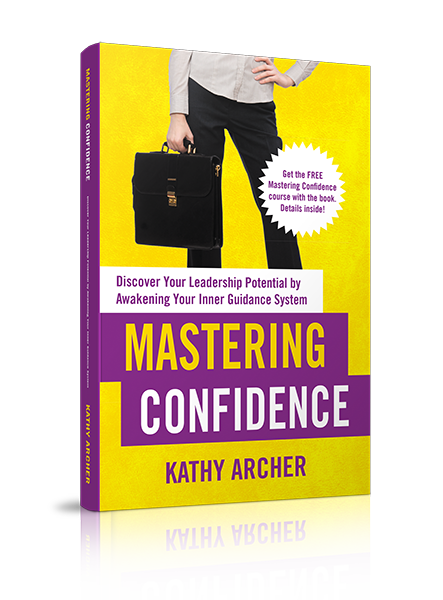
Available on Amazon
Archives
March 2024
|
|
Leadership TRAINING for Nonprofit Leaders
Become a confident and competent nonprofit Leader: Join The Training Library membership Executive and Leadership COACHING Leadership Coaching for Nonprofit Executives, Leaders and ManagerCoaching |
PODCAST for Nonprofit Leaders
The Surviving to Thriving podcast: Strategies, systems and support to lead your nonprofit with confidence FREE RESOURCES to Grow your Leadership Skills Free Leadership Training Resources, Worksheets and Templates |
Become a CONFIDENT LEADER
|

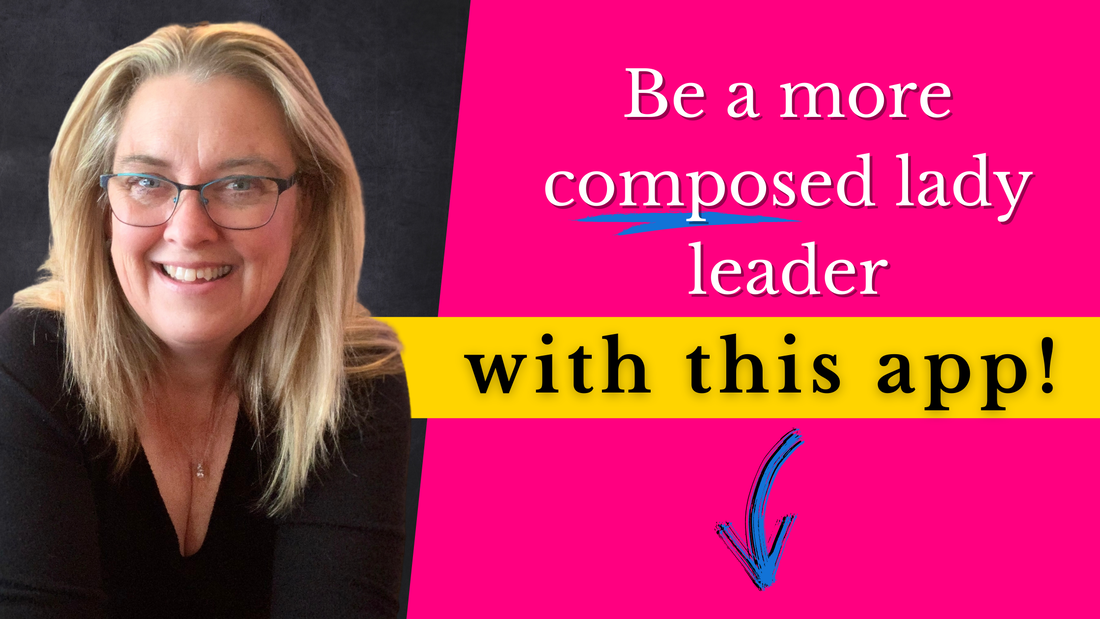
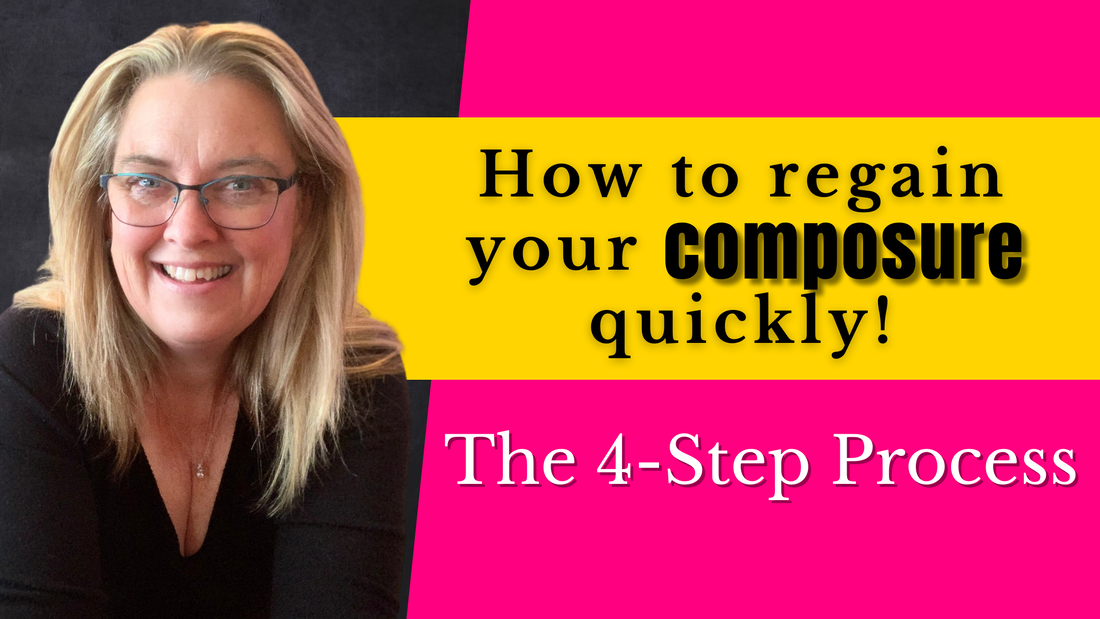
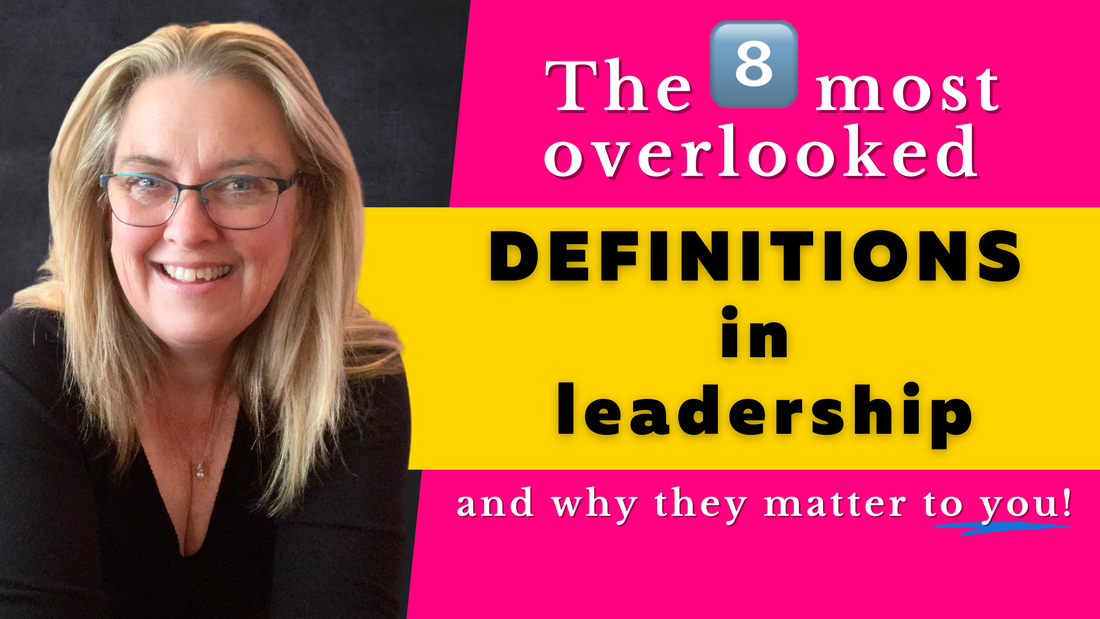
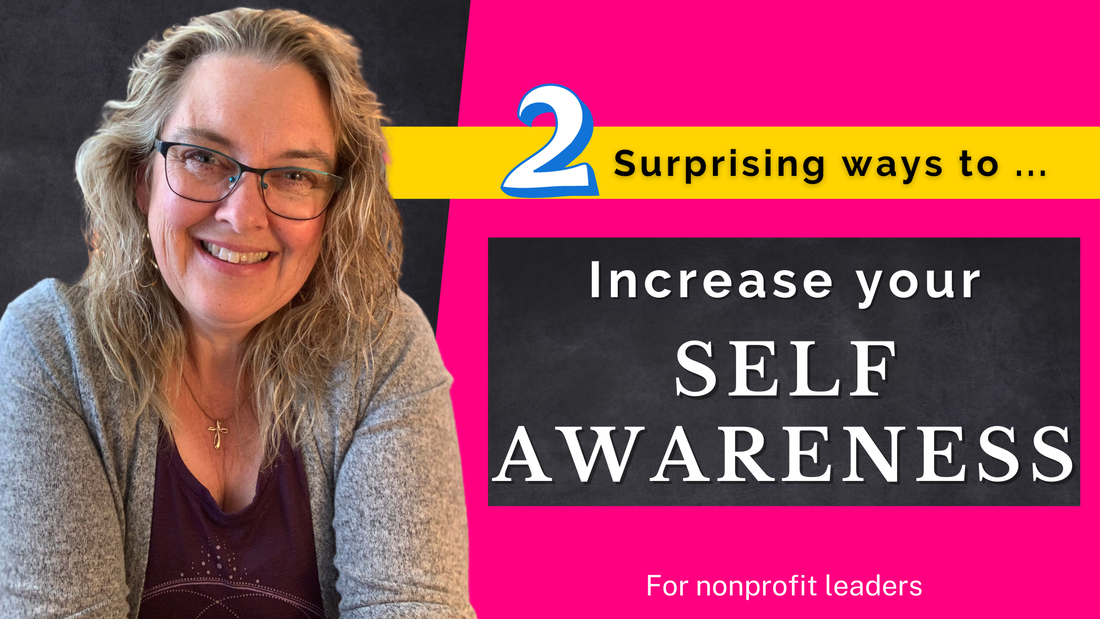

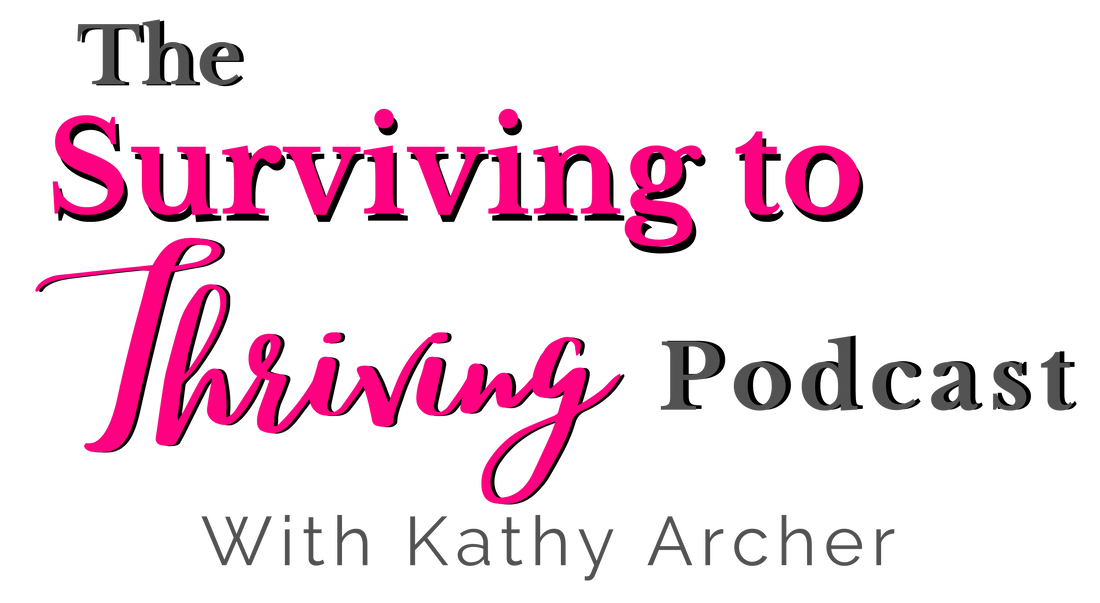
 RSS Feed
RSS Feed
